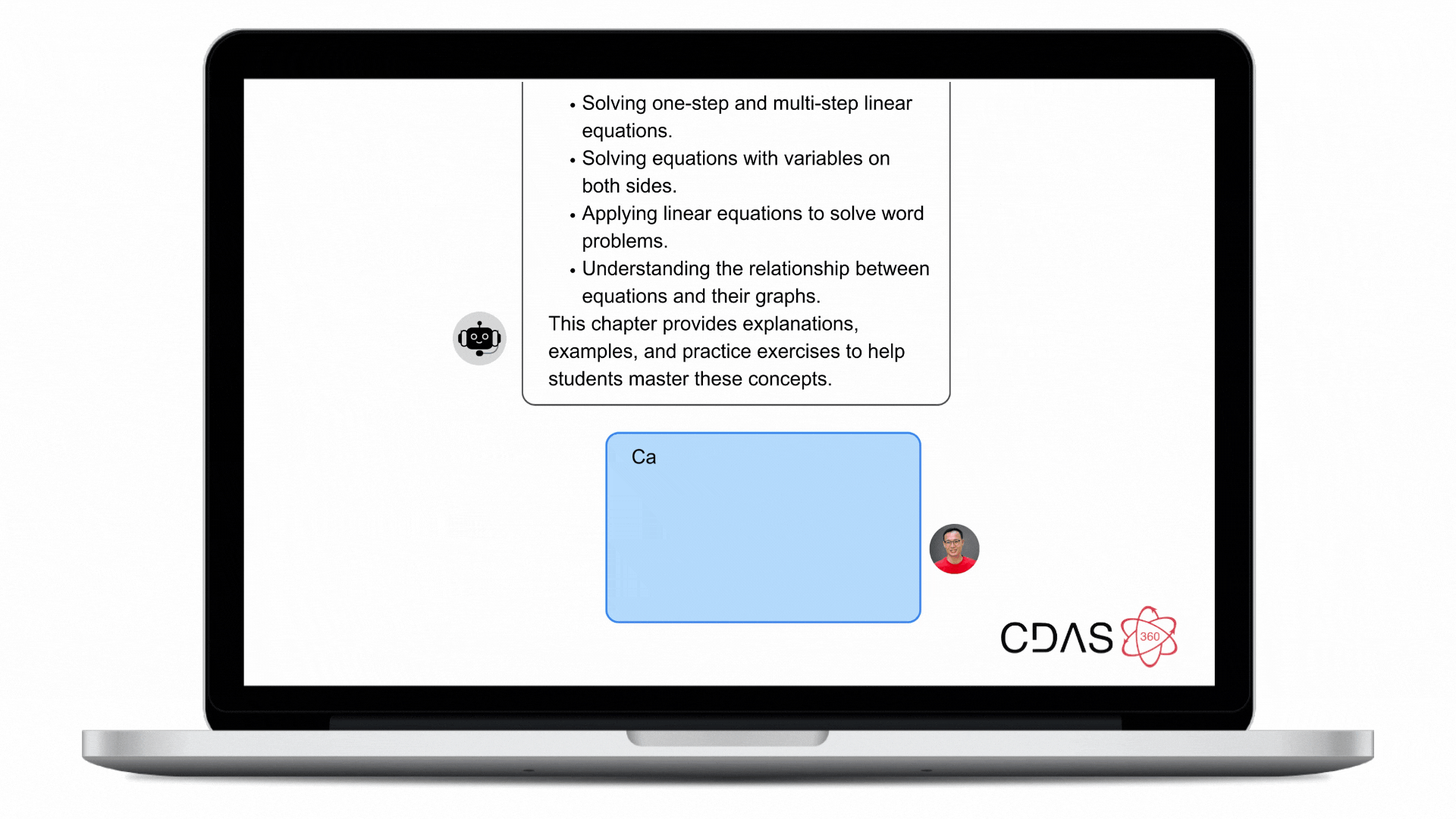Revolutionizing Learning with AI in Education
- Diana Stratulat
- Jul 24
- 4 min read
At CDAS360, we believe Artificial Intelligence isn't just transforming education; it's fundamentally reshaping how students learn and teachers instruct. With its myriad applications, AI is making learning more personalized, efficient, and accessible than ever before. From adaptive learning platforms to intelligent chatbots, the evolution of technology, especially with the power of Google Cloud, is creating a dynamic landscape for education.
AI Tools in Learning
The integration of AI tools in learning environments has accelerated dramatically in recent years, and we're at the forefront of helping institutions utilize them. These tools personalize learning experiences, catering to individual needs and making it possible for learners to grasp concepts at their own pace. Imagine platforms powered by Google Cloud's Vertex AI, where custom machine learning models analyze students' strengths and weaknesses, providing tailored resources and exercises that genuinely enhance understanding.
Consider a student who's grappling with mathematics. Instead of a generic approach, an AI tool, built on the scalable infrastructure of Google Cloud, can meticulously analyze their performance, pinpoint specific areas of difficulty, and dynamically adapt the presented material. This allows learners to focus precisely on their personal hurdles, moving far beyond the traditional, one-size-fits-all classroom model.

Beyond individual learning, AI's analytical capabilities play a crucial role in predictive analytics. At CDAS360, we help institutions harness the power of Google Cloud's BigQuery and Looker to forecast student performance. By securely monitoring attendance, grades, and engagement levels, schools can proactively identify at-risk students, allowing educators to provide targeted support precisely when and where it's needed most.
Enhancing Teacher Efficiency
Educators are not left out of the AI revolution. AI tools can relieve teachers of time-consuming tasks, allowing them to concentrate on teaching and supporting students. For instance, grading software powered by AI can assess students' written assignments, providing quick feedback on grammar, style, and coherence. This frees educators to focus more on curriculum development and personal interaction with students.
Additionally, an AI-driven lesson-planning tool can analyze curriculum standards and suggest activities and materials that align with those standards. Teachers receive support to develop more engaging lessons that resonate with students' interests and learning objectives.

AI technologies also enhance professional development for educators. Teachers can engage with online platforms that use AI to analyze teaching styles, offering suggestions to improve effectiveness. By providing real-time feedback, these platforms empower teachers to refine their skills and adopt best practices.
How Will AI Play a Role in Education?
AI's influence extends beyond individual classrooms; it has the potential to enhance entire educational systems. For instance, institutions are now employing AI-driven chatbots that handle routine inquiries from students. These bots can assist students with common questions about course schedules, admissions, and academic resources 24/7, improving efficiency for school administrators.
Additionally, virtual classrooms powered by AI are emerging. These platforms utilize machine learning algorithms that adapt to students' learning habits, creating customized educational content. With the rise of remote learning, such tools ensure that students receive a robust educational experience, regardless of location.
AI applications can also facilitate collaboration among students. By using smart collaboration tools, learners can work together on projects, leveraging AI to provide real-time feedback and resources. Such cooperation helps foster teamwork and enhances the learning experience.
Teacher utilizing customized AI chatbot for education plan
Addressing Challenges and Concerns
Despite the many undeniable benefits of AI in education, we recognize that challenges persist. One significant concern is data privacy. As schools increasingly collect data on students' performance, ensuring this information is protected from breaches is paramount. We advocate for and help implement robust data security measures, using Google Cloud's industry-leading security features and compliance certifications, to safeguard sensitive information.
Another issue is the digital divide. Not all students have equal access to technology, which could exacerbate existing inequalities. We believe in equitable access and work with educational institutions and governments to provide resources, ensuring all students can truly benefit from these innovative tools, often exploring solutions that leverage Google Cloud's accessibility.
Training educators to utilize AI effectively is also essential. Teachers must be equipped with the skills to navigate and seamlessly integrate AI technologies into their teaching. This requires ongoing professional development programs designed to enhance educators' confidence and competence in using AI tools.

Future of AI in Education
Looking ahead, the potential for AI in education is vast. Advances in Natural Language Processing (NLP) can lead to even more immersive learning experiences. Imagine a classroom where students can interact with AI in real-time, receiving feedback on their presentations, writing, or comprehension skills while they learn.
Moreover, as AI becomes more sophisticated, we can anticipate further personalization. Future learning environments may create individual learning plans that evolve based on students' interests, performance, and talent. This adaptability can significantly enhance student engagement and motivation.
Investment in AI research in education will also play a pivotal role. Educational institutions, tech companies, and government bodies must collaborate to innovate effective AI-driven tools. By fostering a culture of experimentation, the potential for breakthrough solutions that improve learning outcomes increases.
In conclusion, the role of AI tools in learning is a game changer in modern education. By improving personalized learning, enhancing teacher efficiency, and creating collaborative environments, AI offers unprecedented opportunities for students and educators alike. As we navigate these changes, it is crucial to address challenges such as data privacy and the digital divide, ensuring that the benefits of AI in education are equitable and accessible to all. Through thoughtful implementation, AI has the power to transform learning experiences, preparing students for a future that relies heavily on technological proficiency and innovation.





